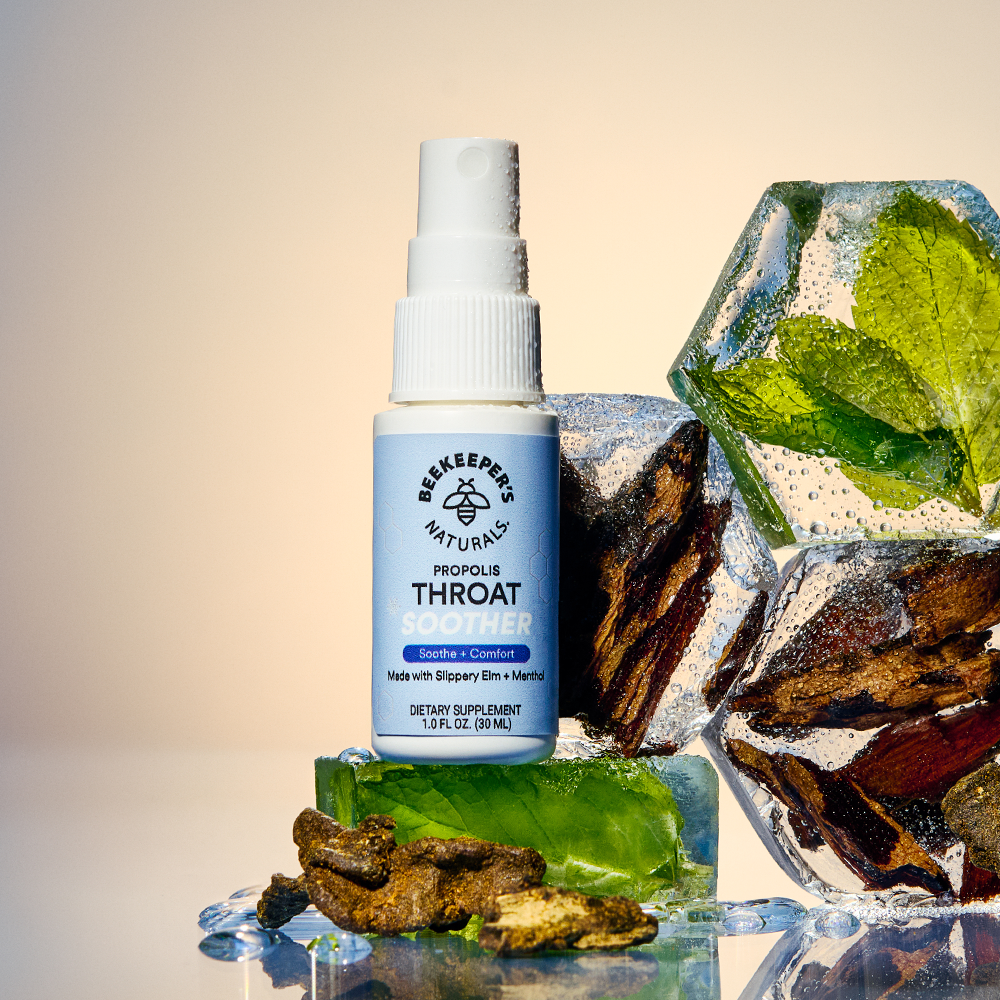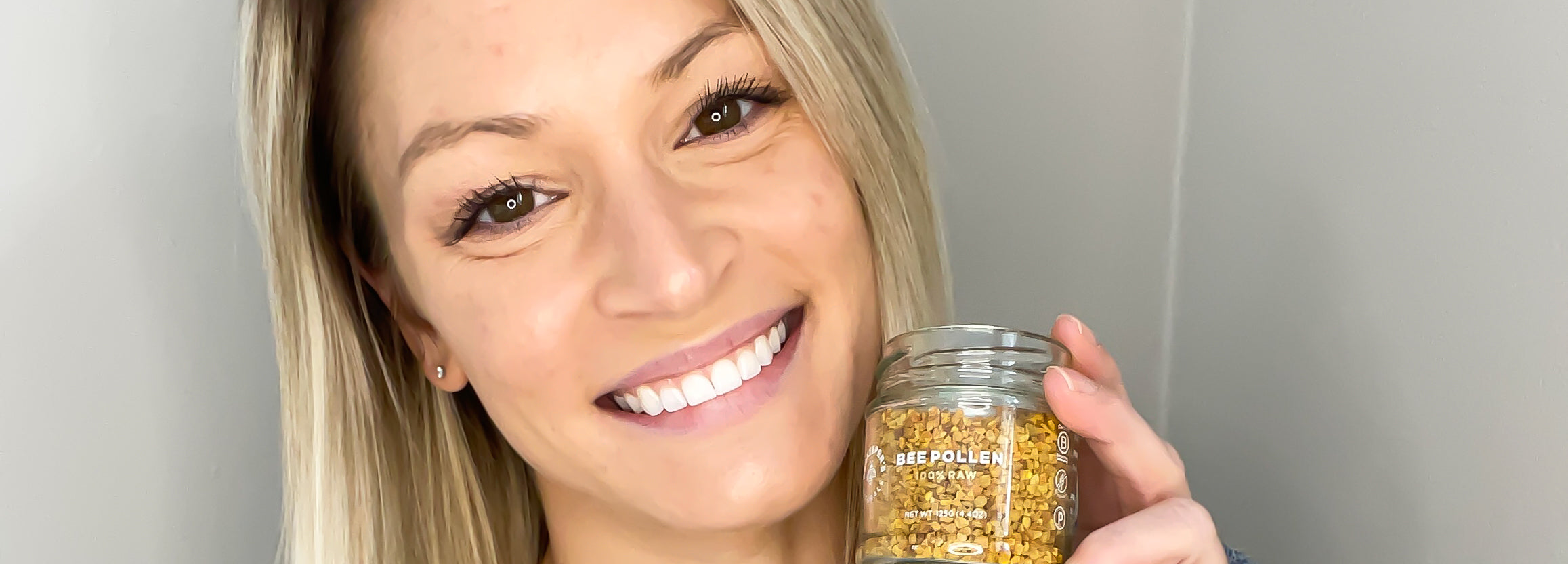When you feel that first tickle in your throat, you probably reach for cough syrup (preferably cough syrup supercharged with great ingredients) as your first line of defense. Sometimes, though, you need your medicine cabinet to go where you go—and that’s why cough drops are a game-changer.
The problem? Many lozenges just don’t deliver on their lofty promises. So if you find yourself browsing the medicine aisle, wondering “wait a sec, do cough drops work?,” the answer largely depends on what ingredients are listed on the back of the package.
Don’t worry: We’re here to help you read those labels like a pro and pick out a lozenge that will actually support your health. We spent over two years developing our B.Soothed Honey Lozenges—and we geeked out a ton along the way. Consider cough drop school in session.
First thing’s first: How are cough drops supposed to work?
Warning: In order to explain how cough drops work, I have to use words like “lubricate.” Sorry in advance.
Penn State reports that lozenges calm coughs by, ahem, lubricating the throat tissue with ingredients like menthol (a chemical found in mint that can also be synthetically made in a lab). Some cough drops also release medicine as they dissolve—almost as though they’re becoming cough syrup as they melt on your tongue.
Okay, so do cough drops work?
In theory, something that calms your throat and helps you breathe easy sounds like just what the doctor ordered. But not so fast: An emerging body of research shows that conventional cough drops—and specifically varieties with menthol—may make your cough worse.
After culling the data of 548 survey participants, researchers at the Wisconsin Research and Education Network (WREN) found that the 66 percent of people taking cough drops actually experienced more severe coughs than those who weren’t taking the medicine. They also found a strong correlation between cough severity and the amount of menthol cough drops taken per day, the dosage of menthol in the lozenges, and the daily intake of menthol.
More research is needed before we fully understand the effects of menthol on the body, but for now, it’s important to note that countless conventional cough drops contain this ingredient. And the truth is, there are natural ingredients that do the job without the potential side-effects (stick around to hear more on that).
What about the added sugar?
Aside from menthol, many cough drops also contain added, unnecessary sugars that may not be the best fit for everyone’s body. According to the Food and Drug Administration (FDA), the average American should consume no more than 50 grams of sugar per day (although, don’t forget that the American Heart Association recommends less than half that amount—24 grams).
While some cough drops contain three or more grams of sugar, the larger concern is the sugar-free flavors that often contain aspartame and/or acesulfame potassium. Technically, these artificial sweeteners are FDA-approved, but the Center for Science in the Public Interest reports that these ingredients have raised plenty of red flags when it comes to potential health concerns.
Again, more research is needed before we fully understand the long-term effects of consuming these artificial sweeteners—but we don’t have to keep relying on the same old cough drops in the meantime. There are plenty of natural sweeteners that don’traise eyebrows in the scientific community. And, in our opinion, those are the ones that you want in your cough drops. That brings us too…
The anatomy of a better cough drop: Why Beekeeper’s Naturals is better
As a company that believes in nature as our number-one pharmacy, Beekeeper’s Naturals set out to create a lozenge that contained all of the good stuff… and none of the bad. Through that process, we found inspiration (and formulation) in SO many amazing hive ingredients—and they all made into our B.Soothed Honey Lozenges.
The anatomy of a clean cough drop:
Bee Propolis: The medicine of the beehive, propolis contains over 300 vitamins and nutrients that benefit the human immune system.
Raw Honey: Research finds that raw honey is better at alleviating cough frequency, severity, and bothersomeness than dextromethorphan (a cough suppressing agent found in conventional cough drops and syrups).
Vitamin D + Zinc: These two key vitamins support immune function—and they’re better together.
Monk Fruit: A natural sweetener native to southern China and northern Thailand, monk fruit is a low-glycemic food that doesn’t cause any energy crash like processed sugars can.
Get in on the goodness: Try our product for yourself.








